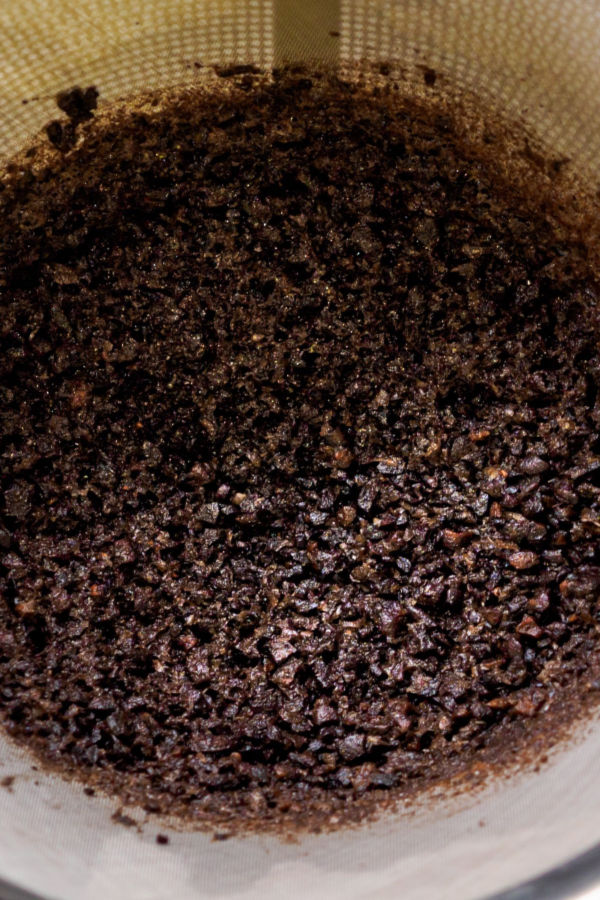Is It Safe to Dump Coffee Grounds Down the Sink? - Understanding Potential Issues
Book A Free EstimateThe article author is making a few good observations related to Is it safe to dispose of coffee grounds down the sink? as a whole in this post followed below.

If you're a passionate coffee enthusiast, you could be wondering about the very best means to throw away your coffee grounds. While it may appear convenient to clean them down the sink, this method can lead to a number of concerns for both your plumbing and the atmosphere. In this post, we'll discover whether it's risk-free to place coffee grounds down the sink and go over alternative disposal techniques to take into consideration.
Threats of Putting Coffee Grounds Down the Sink
Plumbing Issues
One of the main interest in getting rid of coffee premises down the sink is the risk of obstructing your pipelines. Coffee premises don't dissolve in water and can collect in time, developing a dense sludge that can block drains and lead to pricey plumbing fixings.
Ecological Impact
Past the prospective damage to your plumbing, putting coffee premises down the sink can likewise harm the environment. When cleaned right into the sewer system, coffee grounds can contribute to clogs in sewage system lines and treatment facilities. Additionally, the high focus of raw material in coffee grounds can diminish oxygen levels in rivers, adversely affecting aquatic life.
Alternatives to Disposing of Coffee Grounds
Composting
One environment-friendly option for disposing of coffee premises is to compost them. Coffee grounds are abundant in nitrogen, making them an outstanding enhancement to compost heap or containers. As they decay, they add nutrients to the soil, improving its fertility and appearance.
Garbage Disposal
If you do not have a composting setup, an additional alternative is to merely toss your coffee premises in the trash. Make certain to seal them in a compostable bag or container to stop smells and leak. While this approach doesn't supply the very same ecological advantages as composting, it's a secure and practical method to take care of coffee premises.
Tips for Proper Disposal
Make Use Of a Sink Strainer
To avoid coffee grounds from entering your sink's drain to begin with, take into consideration making use of a sink filter. These cost-effective tools catch strong bits, including coffee grounds, preventing them from creating blockages.
Regular Maintenance
Despite exactly how you choose to take care of your coffee premises, it's vital to preserve your plumbing frequently. Schedule regular drain cleansings to eliminate any type of build-up and guarantee that your pipelines remain clear and free-flowing.
Conclusion
While it may be alluring to clean coffee grounds down the sink for ease, doing so can have major repercussions for your plumbing and the setting. Instead, consider composting your coffee premises or dealing with them in the trash. By adopting responsible disposal methods, you can enjoy your coffee guilt-free while lessening your eco-friendly impact.
Coffee Grounds Down The Drain: Are They OK?
Can Coffee Grounds Go Down the Sink?
You may be thinking, “But I pour them down the sink drain every day and I’ve never had a clogged drain!” You see, coffee grounds come from coffee beans, which are virtually rock hard by the time they’re ground and brewed. You certainly wouldn’t want to grind up the pit from a peach, apricot, or nectarine that is about just as hard because they wouldn’t break down like other foods, and it’s the same with coffee beans!
If you usually grind coffee beans in the garbage disposal because it seems the cleanest and convenient, we don’t fault you for that. And anyone who has ever had to clean up the trash with spilled coffee grounds after a dog got into it would understand the rationale. Unfortunately, coffee grounds do not break down in water, so instead of grinding up and washing away as normal foods do in a garbage disposal, they clump together and as time goes by, the grounds can form a clump and pack the drain until it develops a clog.
What to Do With Coffee Grounds
So, what do you do with coffee grounds if you can't put them down the drain? You could of course just throw them in the garbage, but we encourage you to give these practical uses for them a try!
Since coffee grounds contain key minerals for plant growth, you can use them to fertilize your garden. Coffee grounds not only fertilize gardens because they are mineral-rich, but they are also great at absorbing contaminants in the soil, particularly heavy metals. Coffee grounds are said to attract worms, which help gardens flourish. You can use coffee grounds as fertilizer by sprinkling them around your plants. You can compost your coffee grounds and use them at a later time. Coffee grounds are great insect repellents when you place them in bowls or sprinkle them around the areas you want to repel insects. To remove fleas from your dog or cat, simply shampoo your pet then rub coffee grounds throughout their fur. Rinse them off and dry as usual. Like baking soda, used coffee grounds can eliminate odors. You can place them in a bowl in the fridge and let them do the work! Mix coffee grounds with coconut oil for a wonderful face or body scrub, or to reduce the appearance of cellulite. https://www.wintershomeservices.com/blog/2019/august/coffee-grounds-down-the-drain-are-they-ok-/

Do you appreciate reading about Can You Put Coffee Grounds in the Sink Garbage Disposal?? Write feedback further down. We will be pleased to find out your suggestions about this blog. We are looking forward that you come back again in the near future. Loved our blog posting? Please share it. Let other people check it out. Bless you for your time. Don't forget to visit our website back soon.
Call Today